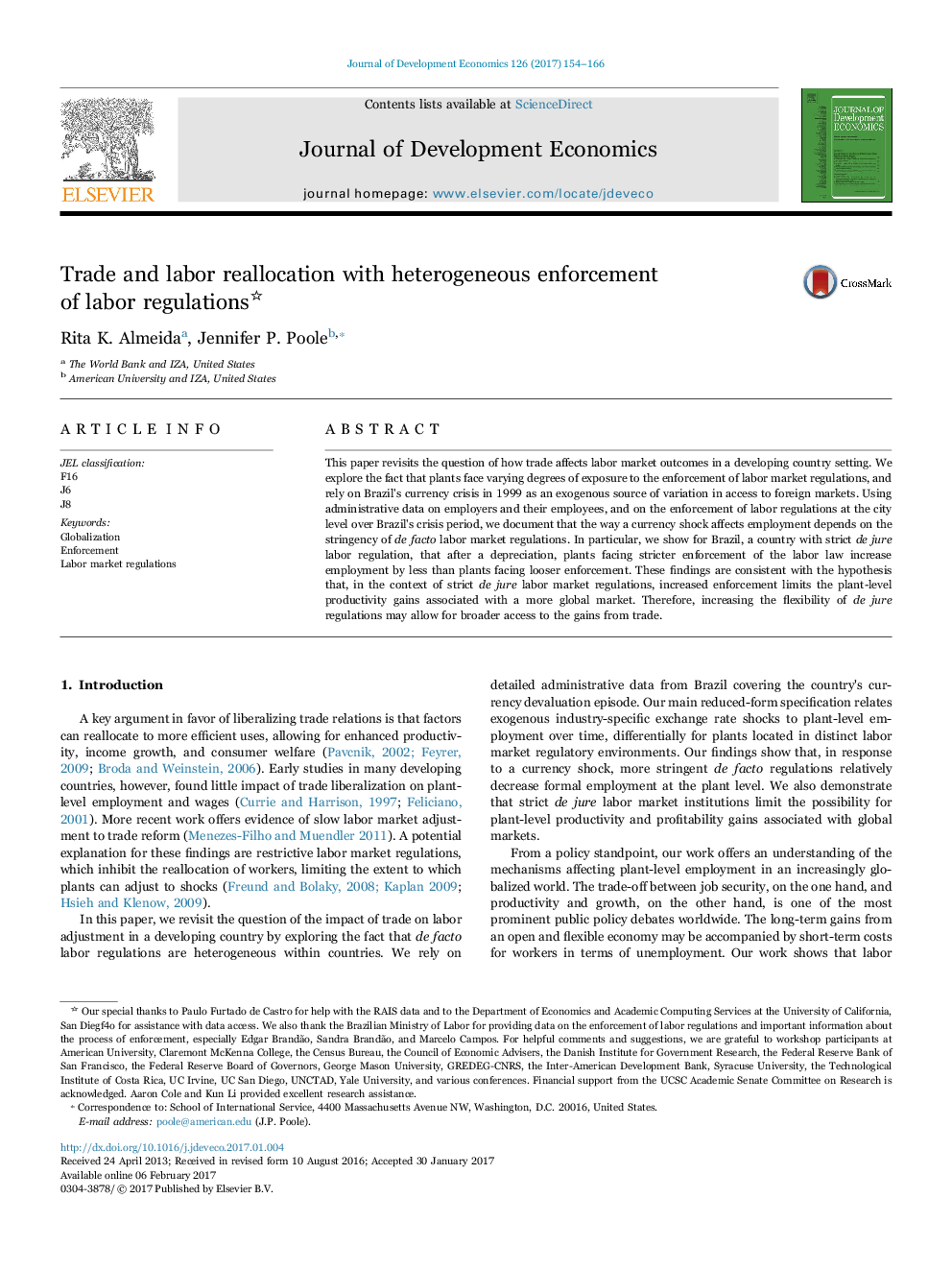ترجمه فارسی عنوان مقاله
تخصیص مجدد تجارت و کار با اجرای ناهمگونی مقررات کار
عنوان انگلیسی
Trade and labor reallocation with heterogeneous enforcement of labor regulations
| کد مقاله | سال انتشار | تعداد صفحات مقاله انگلیسی |
|---|---|---|
| 102198 | 2017 | 13 صفحه PDF |
منبع

Publisher : Elsevier - Science Direct (الزویر - ساینس دایرکت)
Journal : Journal of Development Economics, Volume 126, May 2017, Pages 154-166
ترجمه چکیده
در این مقاله مجددا بررسی سوالاتی مطرح می شود که چگونه تجارت بر روی نتایج بازار کار در یک کشور در حال توسعه تاثیر می گذارد. ما این واقعیت را بررسی می کنیم که گیاهان در معرض مقررات مختلفی از اجرای مقررات بازار کار قرار دارند و بر بحران ارز برزیل در سال 1999 به عنوان یک منبع خارجی از تغییر در دسترسی به بازارهای خارجی متکی هستند. با استفاده از داده های اداری در مورد کارفرمایان و کارکنان آنها و اجرای مقررات کار در سطح شهر در دوره بحران برزیل، ما نشان می دهیم که شکل شوک های ارز بر اشتغال بستگی به شدت قوانین بازار کار واقعی دارد. به طور خاص، ما برای برزیل، کشوری با مقررات سختگیرانه قانون کار، نشان می دهیم که پس از استهلاک، گیاهان با اجرای دقیق تر قانون کار، کار اشتغال کمتر از گیاهانی را که مجبور به اجرای مطلوب هستند افزایش می دهد. این یافته ها با فرضیه مطابقت دارد که با توجه به قوانین سختگیرانه قوانین بازار کار، افزایش اجرایی محدودیت های بهره وری بهره وری در سطح کارخانه را در ارتباط با یک بازار جهانی بیشتر محدود می کند. بنابراین، افزایش انعطاف پذیری مقررات قانونی ممکن است اجازه دسترسی وسیع تر به دستاوردهای تجاری را بدهد.

